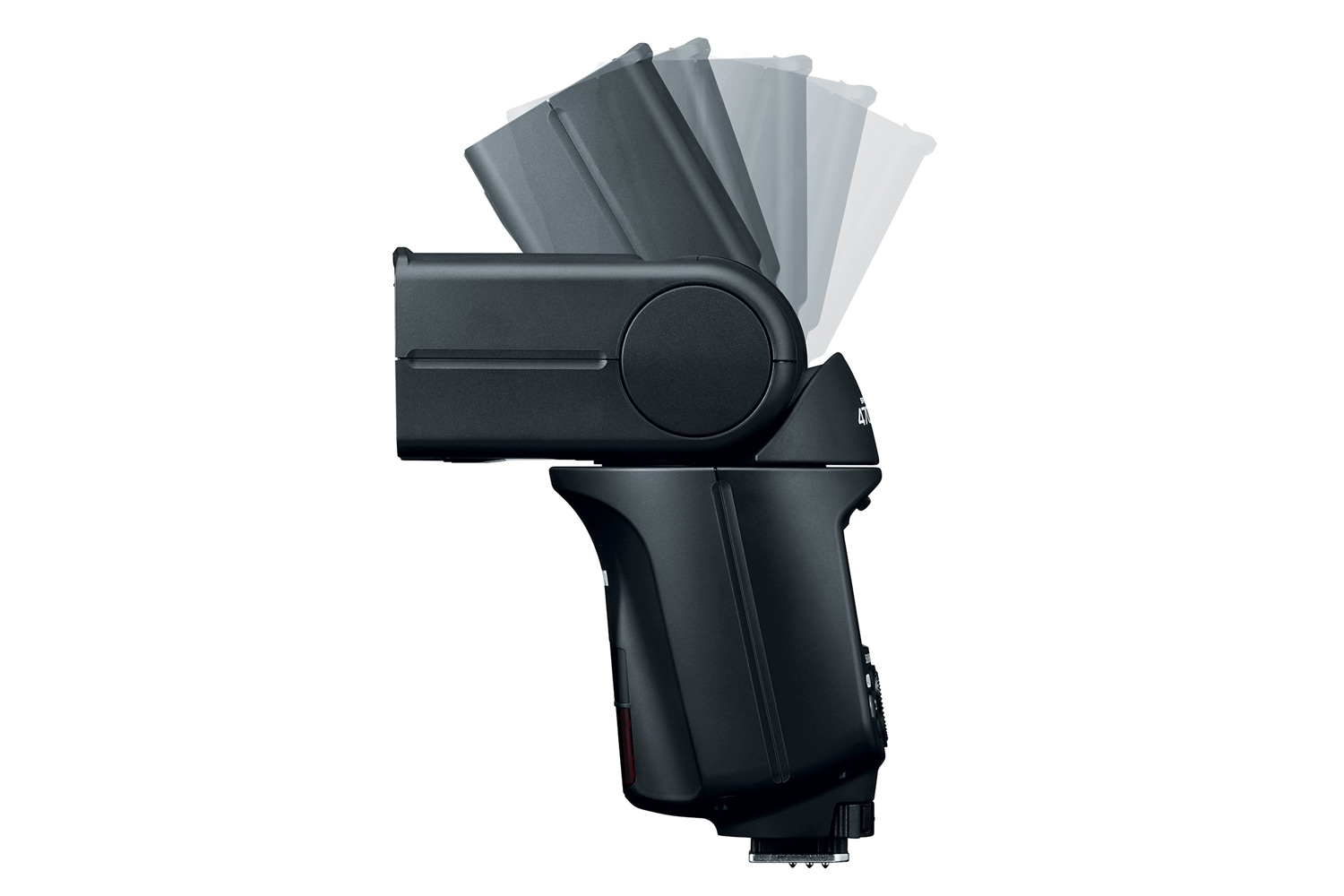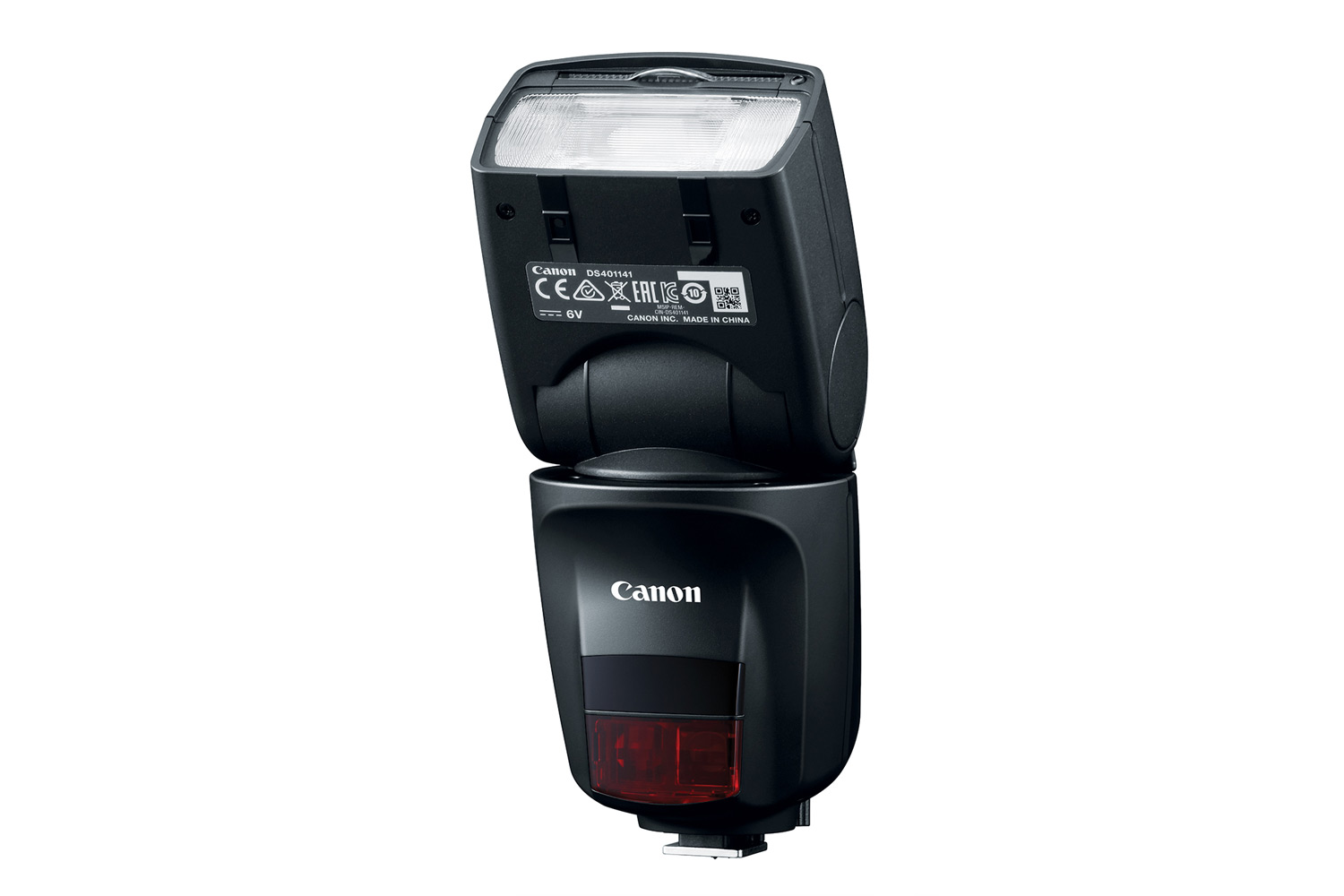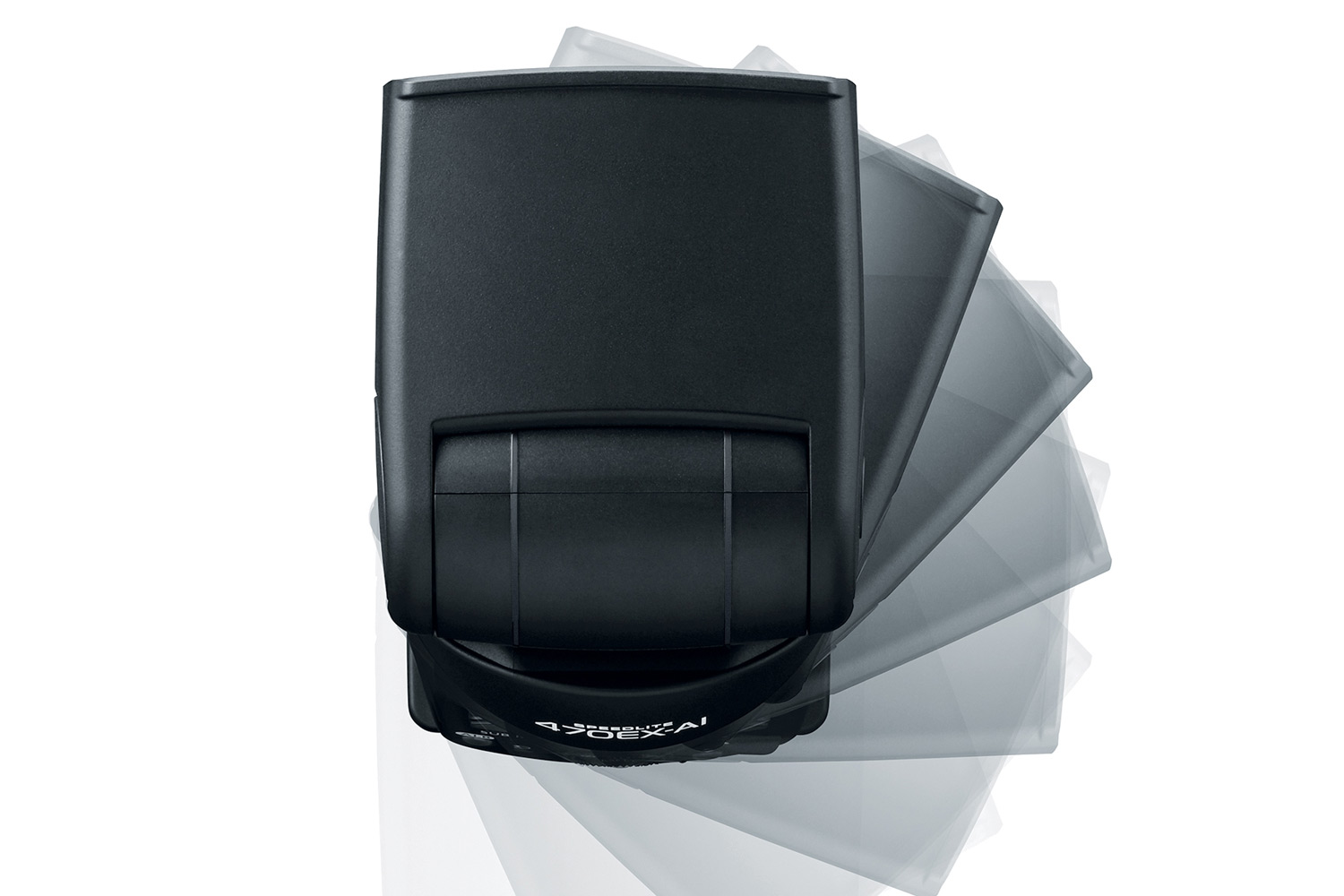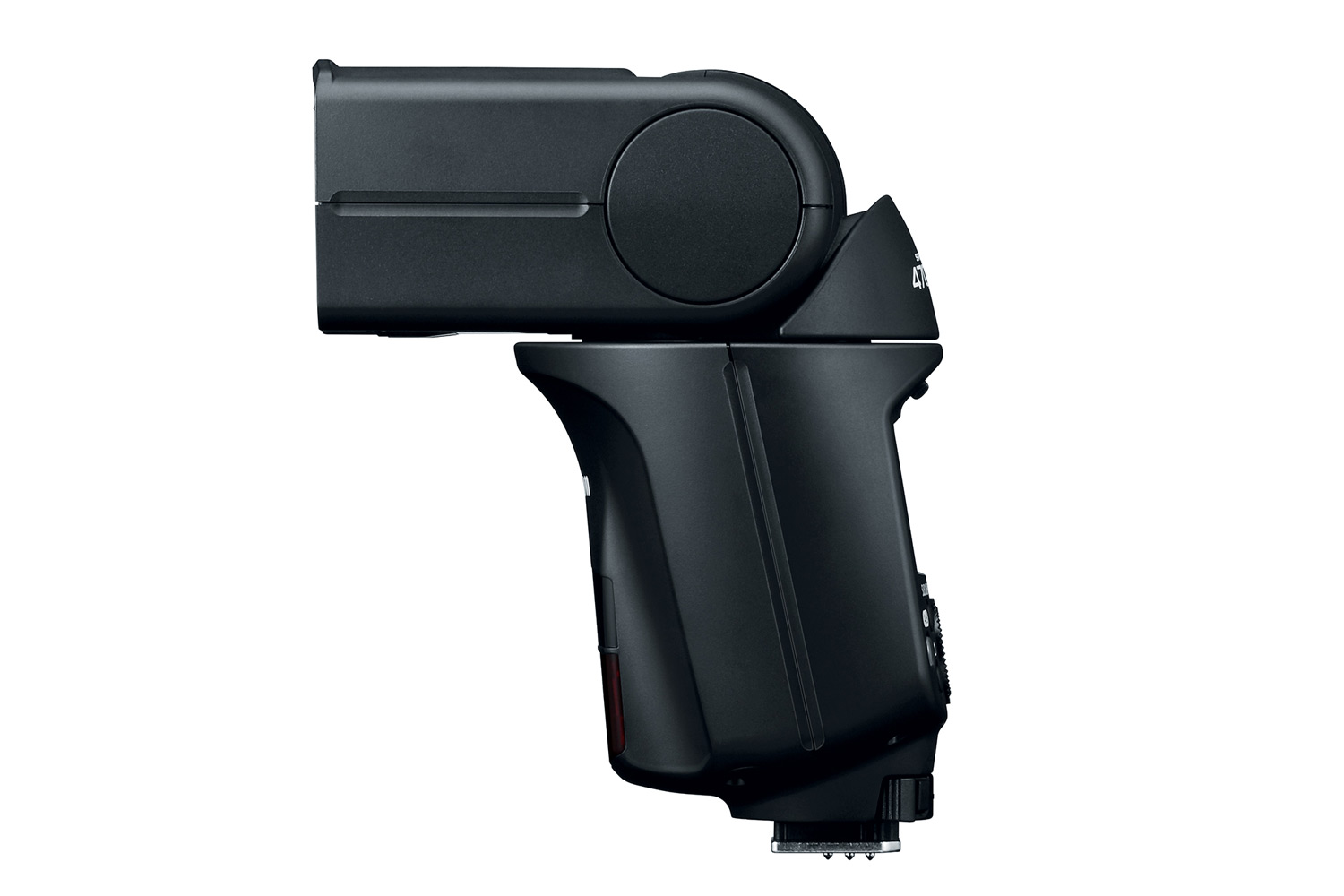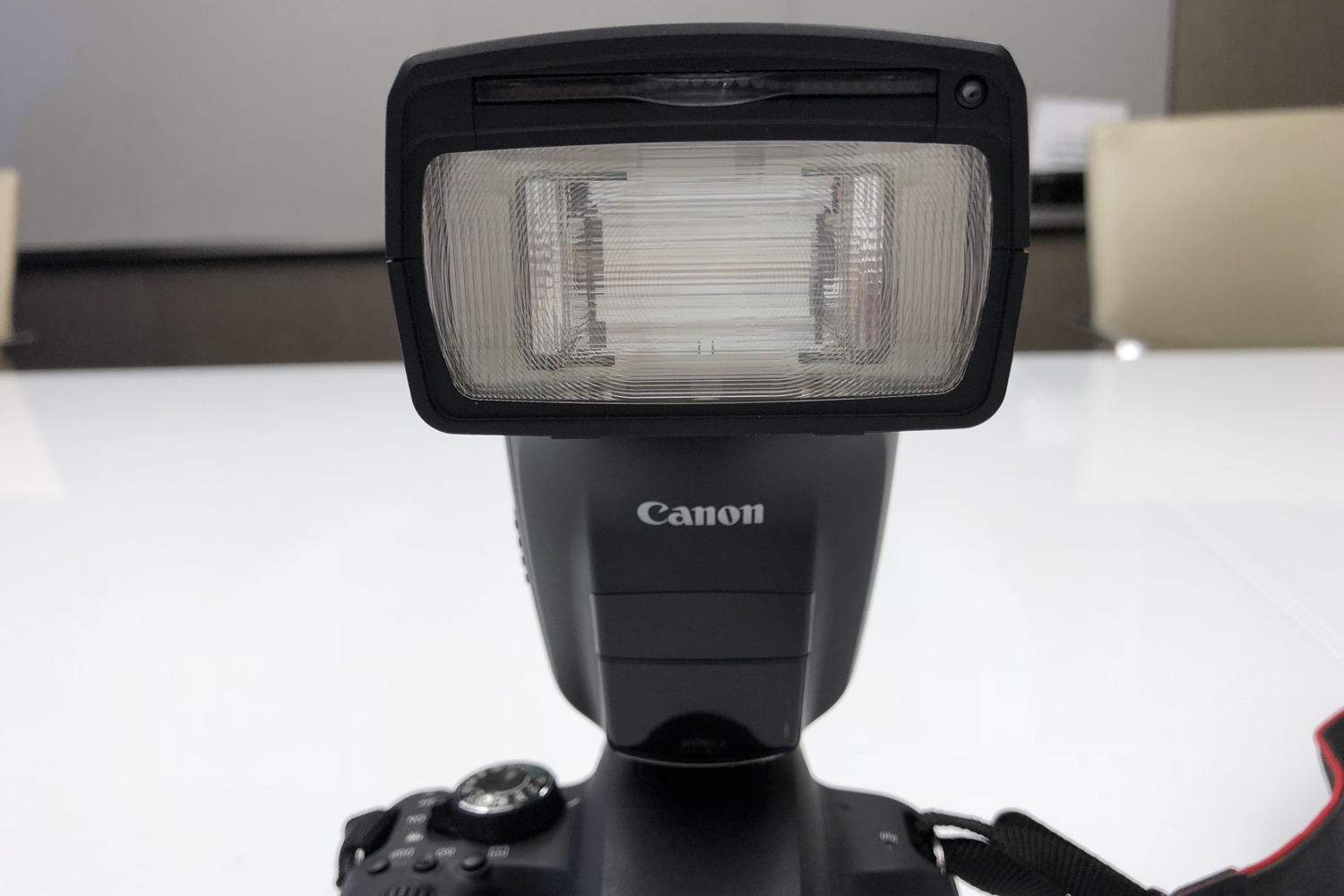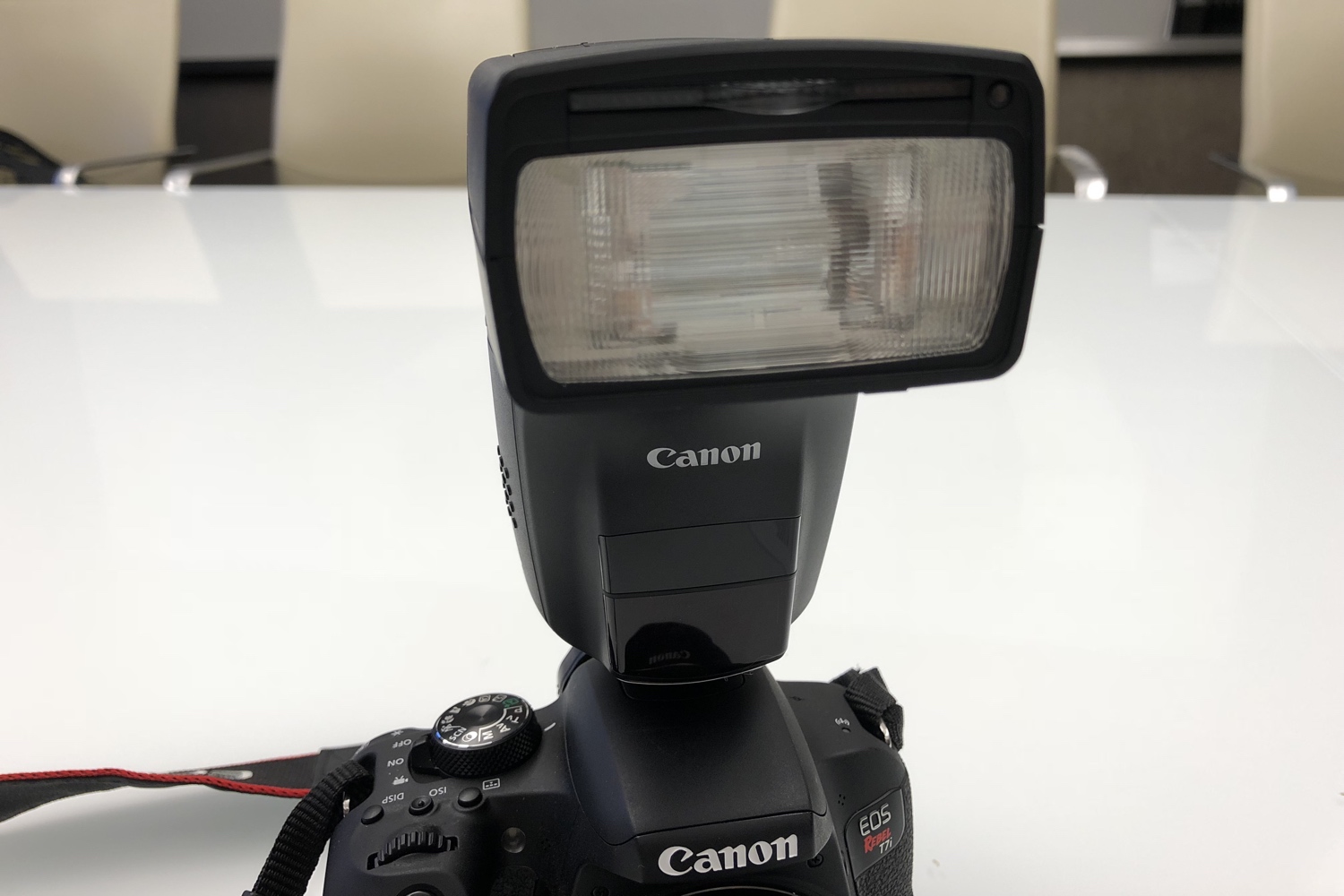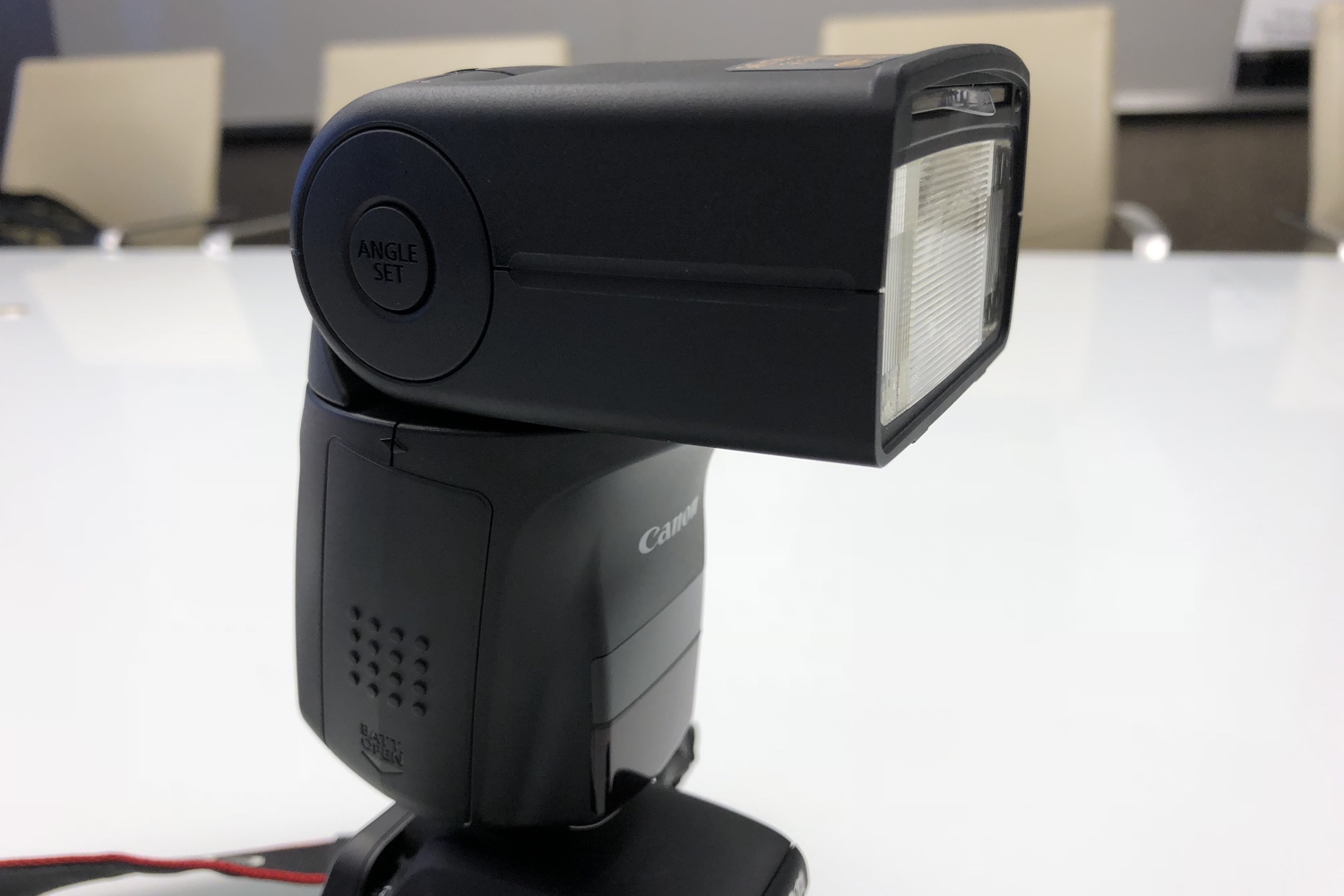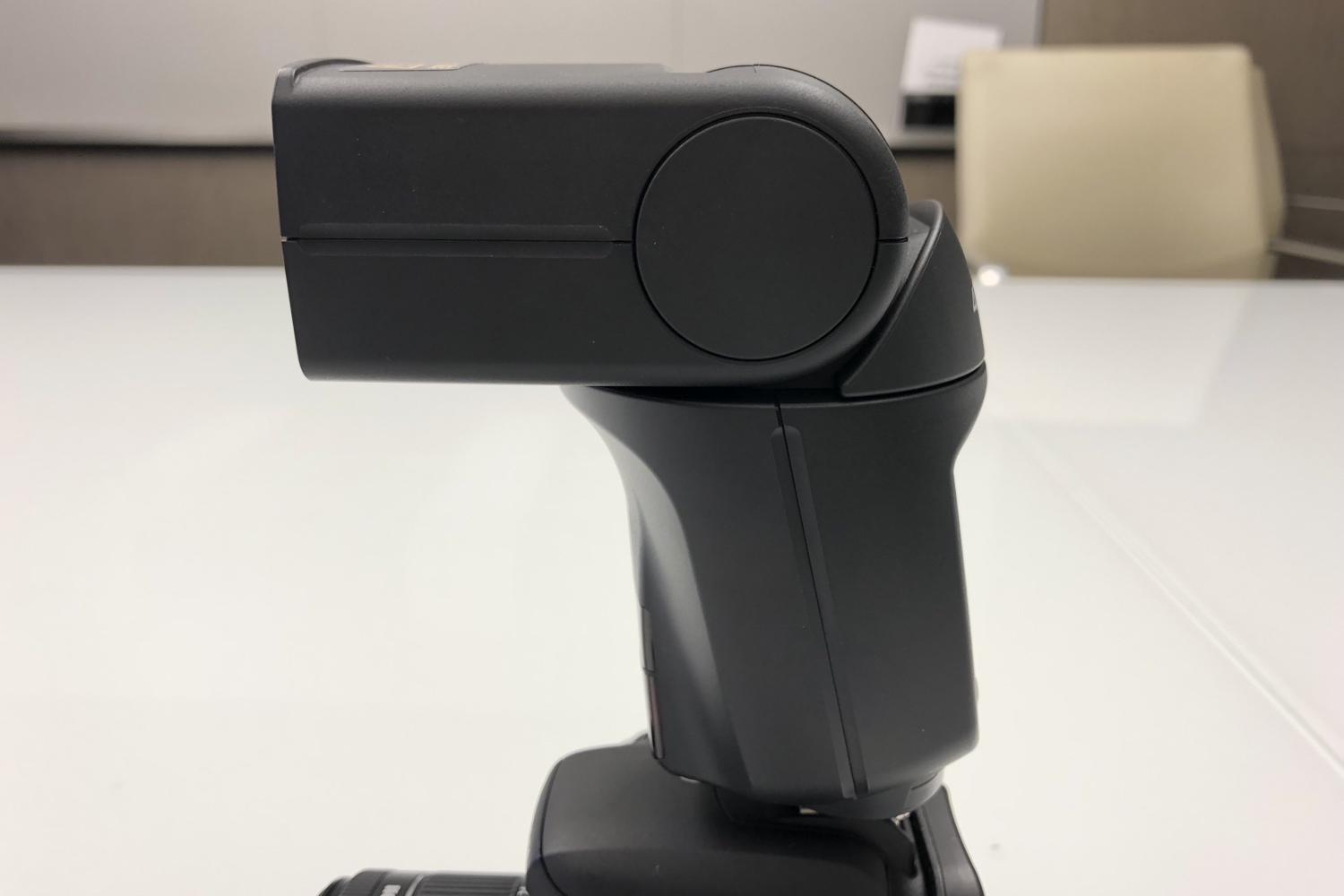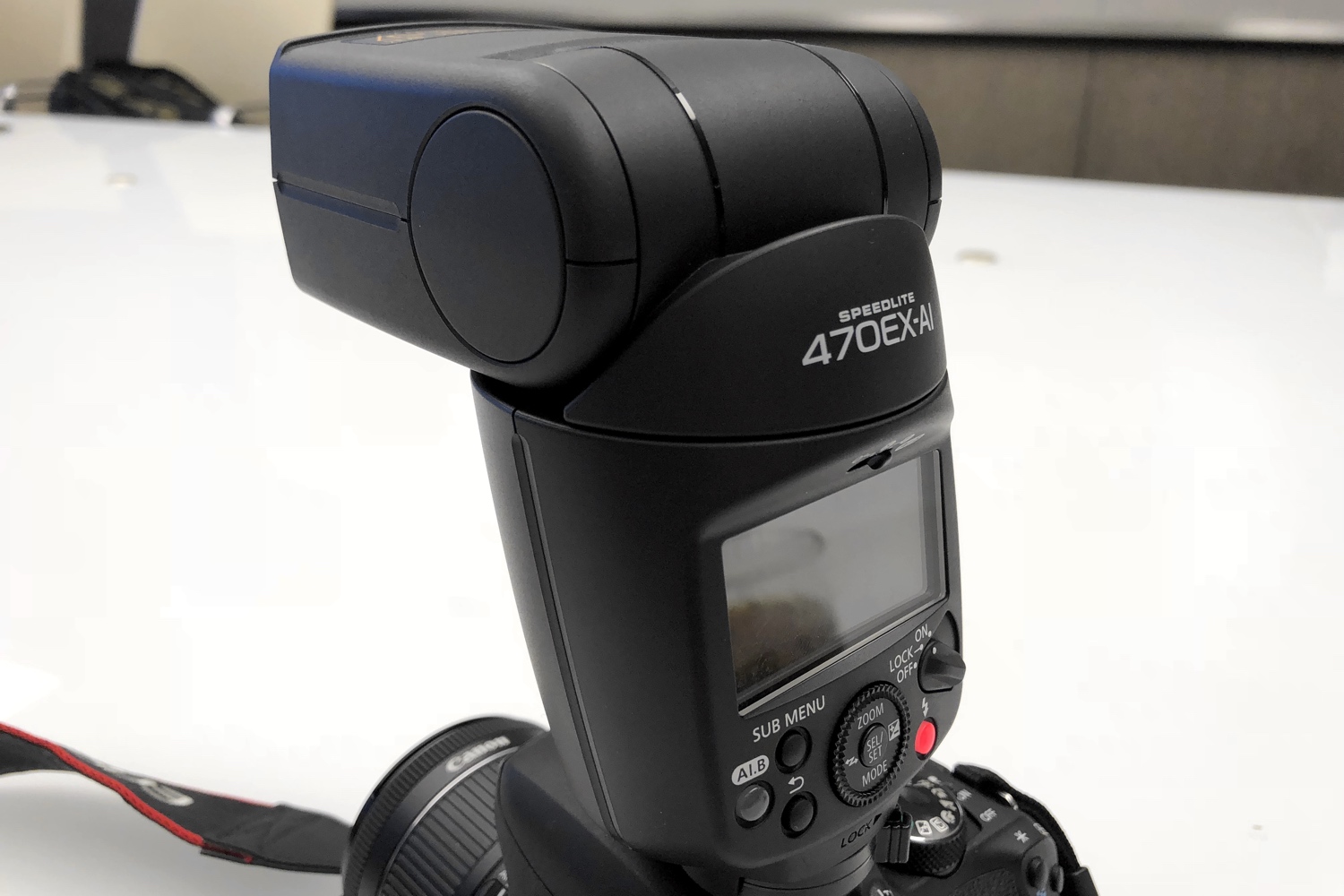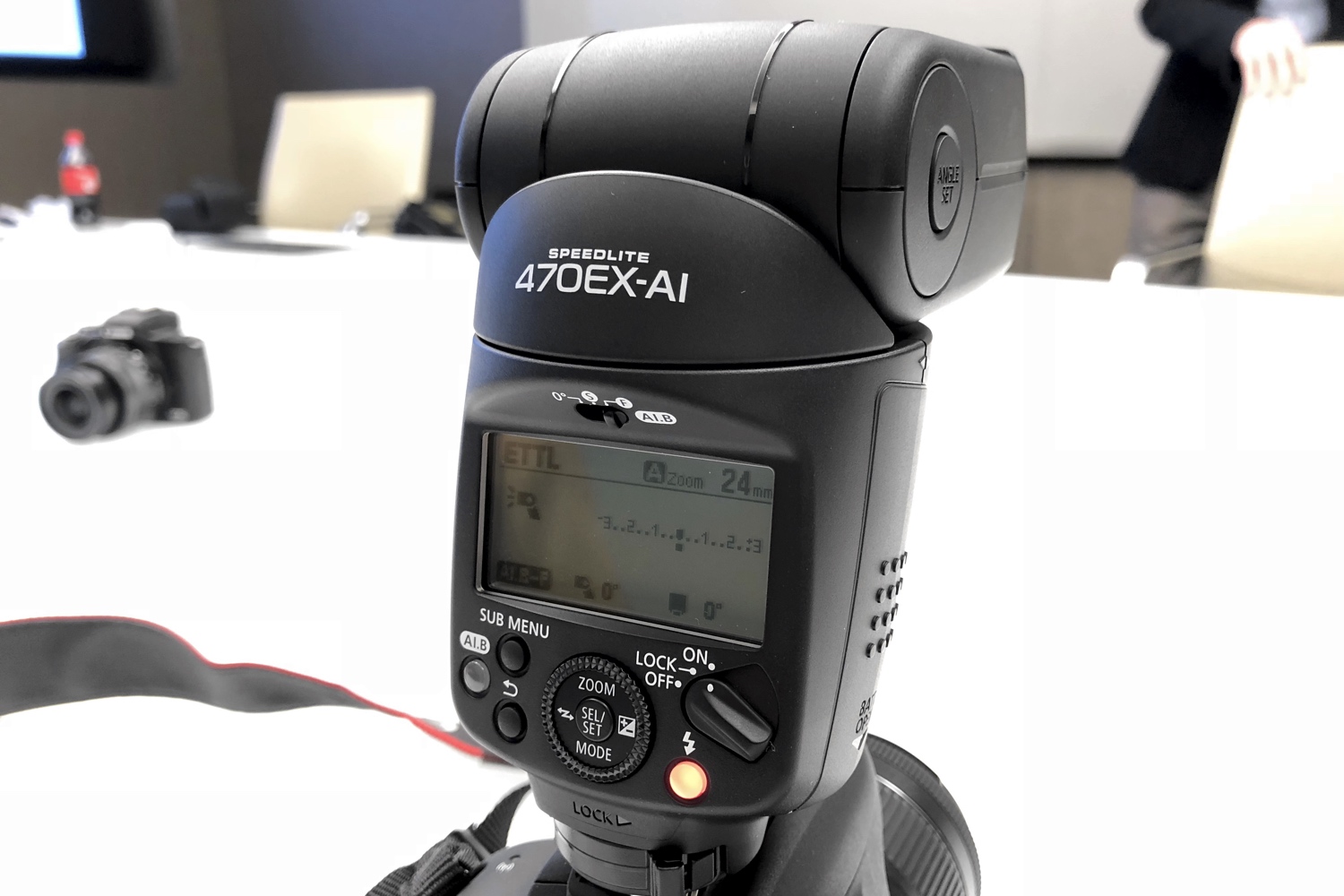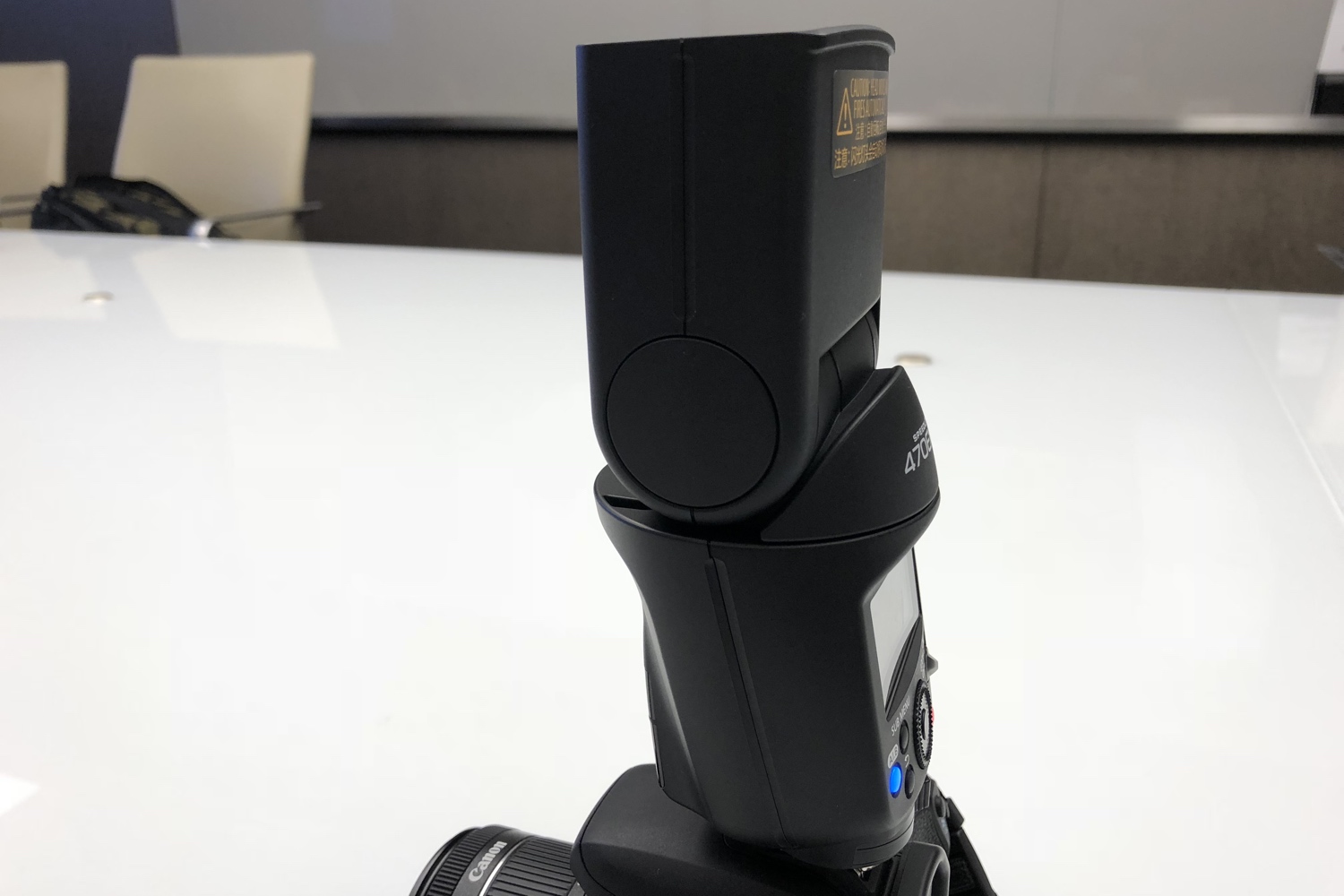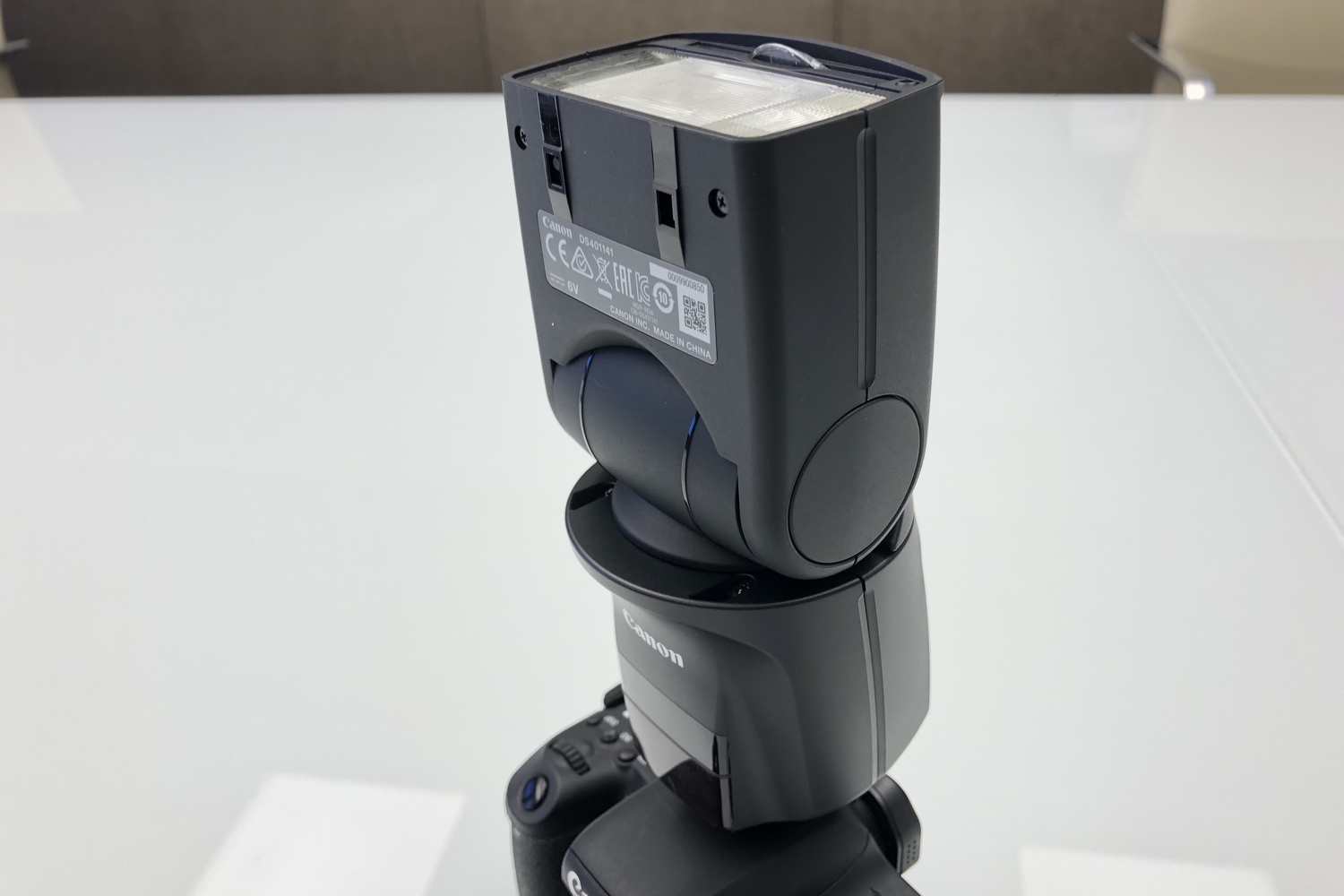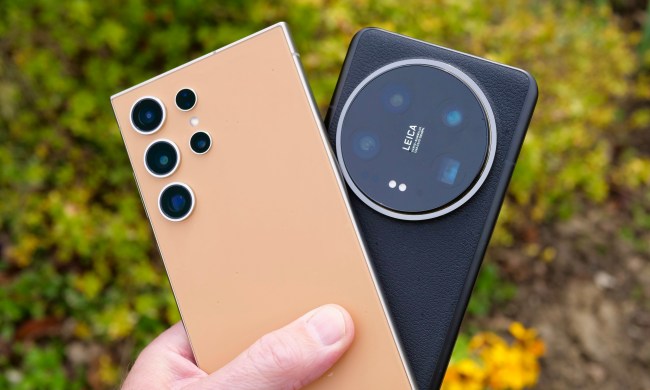Calling it the the “natural next step” in the evolution of DSLR camera systems, Canon has introduced the 470EX-AI speedlite that promises better flash photographs thanks to, yes, artificial intelligence. Geared toward beginners and enthusiasts looking to learn more about flash photography, the 470EX-AI automates one aspect of on-camera flash shooting that experienced users have long been doing manually: bounce angle.
A common mistake novice photographers make when first working with an external flash is to point the flash head directly at their subjects. This leads to what is often called the “deer in the headlights” look and can produce harsh, unnatural shadows. By pointing the flash upwards, the light bounces off of the ceiling and produces a much more natural, softer look with a more even exposure.

Canon’s new AI Bounce technology measures the distance between the flash and the subject, and the distance between the flash and the ceiling to determine the optimal bounce angle. The 470EX-AI automatically tilts the flash head to the correct position, making for what is perhaps the most foolproof flash system yet. The flash is even smart enough to remember the proper bounce angle when switching between portrait and landscape orientations, and will automatically return to that position.
While not geared toward professionals, the 470EX-AI is still a capable flash beyond the AI Bounce tech. It features an optical receiver for remote, off-camera use and a focal length coverage range of 24mm to 105mm (and 14mm when using wide-angle diffuser). Canon advertises a maximum reach of 77 feet in normal mode, based on testing with a 50mm lens at f/1.4 and ISO of 100. Powered by four AA batteries, it acheives a minimum recycle time of 0.1 to 3.5 seconds (depending on power setting) when using NiMH batteries. As with other Canon speedlites, Canon advises against the use of lithium-ion batteries due to heat concerns.
We had a brief opportunity to try the flash using a EOS Rebel T7i. Canon said the flash’s fully automatic mode works with newer EOS DSLR. Older DSLRs, as well as the EOS M mirrorless cameras, will support the flash’s semi-automatic mode, which requires the user to manually adjust certain angles. To activate AI Bounce, you simply double tap (two half-presses) on the shutter button; then, the flash comes to life, automatically measuring the room. If you turn the camera on its side for portraits, the flash automatically repositions itself. Sometimes the flash requires recalibration, but all you need to do is double-tap again. It’s actually enjoyable to play with.

The flash was unveiled on February 25 alongside two other new Canon products geared toward beginner and intermediate photographers: the EOS Rebel T7 DSLR and EOS M50 mirrorless camera. The 470EX-AI is slated to be available in April for a price of $400.

